Dublin - A City that Works
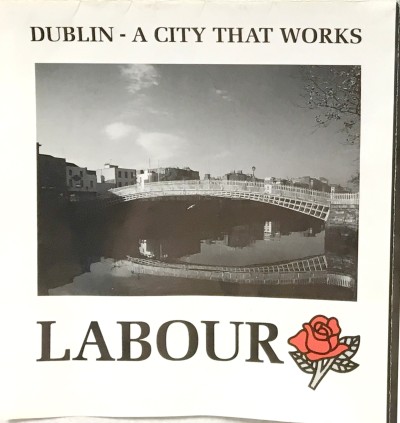
| Date: | 1992 c. |
|---|---|
| Organisation: | Labour |
| Type: | Leaflet |
| View: | View Document |
| Discuss: | Comments on this document |
| Subjects: |
Please note: The Irish Left Archive is provided as a non-commercial historical resource, open to all, and has reproduced this document as an accessible digital reference. Copyright remains with its original authors. If used on other sites, we would appreciate a link back and reference to The Irish Left Archive, in addition to the original creators. For re-publication, commercial, or other uses, please contact the original owners. If documents provided to The Irish Left Archive have been created for or added to other online archives, please inform us so sources can be credited.
Commentary From The Cedar Lounge Revolution
13th July 2020
This is an unusual document issued by the Irish Labour Party in the early 1990s (and many thanks to Kevin Humphrey’s of the LP for donating it).
A single sheet that folds out into a two sided poster/leaflet it offers a strategy for revitalising Dublin. The key points are:
- Public services which put the public first;
- A living inner city;
- Quality public transport to get Dublin on the move;
- Conservation of the city fabric and the green belt;
- Cleaning up of the planning system;
- Tackling of the housing crisis facing low income families;
- Making Dublin a safer place to live.
And it argues:
PUTTING THE PUBLIC FIRST
Public services must put the public first.
That means improving the quality of local services, bringing service offices to where people live, and involving the public as consumers in making decisions. The proposed four councils for Dublin are at the same time too large and too fragmented – too remote from local communities -but fragmenting overall planning for greater Dublin. Natural communities, like Tallaght and Clondalkin, need their own district councils, enjoyed already by areas like Bray and Sligo with only one-third of their population. But Dublin can’t afford four separate Development plans, or an uncoordinated transport and traffic system.
At this remove it is interesting to read:
PUTTING BACK THE CITY’S HEART
The population between the canals has halved since 1960. With over 160 acres of derelict sites in inner Dublin, and pervasive urban decay, time is running out. The success of Glasgow’s urban renewal, achieved mainly through housing associations, gives Dublin a model.
As well as:
REAL LOCAL DEMOCRACY
Real democracy means that citizens can participate at every level in the decisions that affect their lives, and that their voices are heard. It goes far wider than electing different tiers of local government. It means giving parents a say in the education of their children, giving tenants a role in the management of their estates, giving patients an input into the delivery of health services, giving consumers a voice in decisions on public transport.
Local democracy must find a structured way to give citizens a voice in decisions that affect them – a structured consultative role for community councils, devolution of staff to work with community groups in shaping ideas, new ways of working that break down the “them” and “us” between community groups, officials, and elected representatives.
Labour’s vision for Dublin is of the widest possible participation of the community in the day-to-day decisions that affect their lives.
PEOPLE MUST COME FIRST
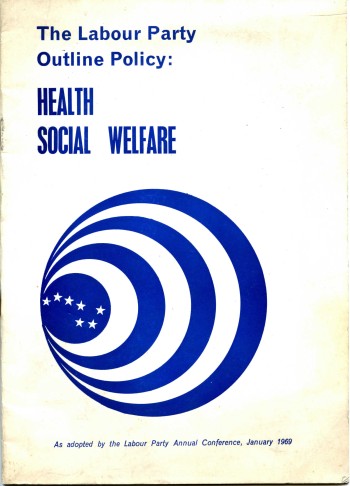
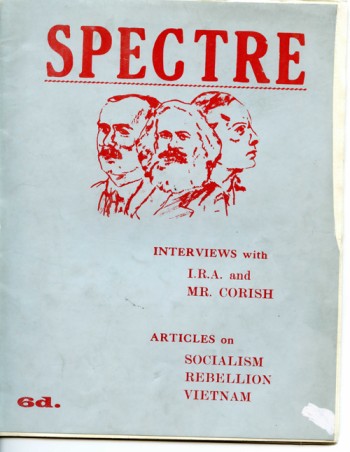
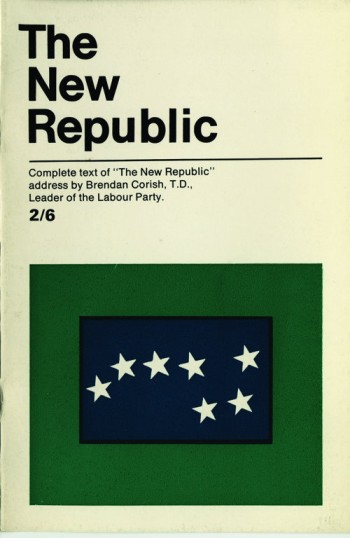
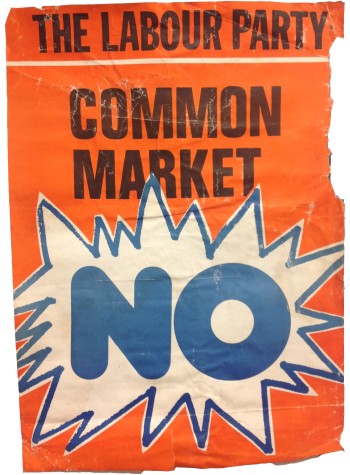
Comments
No Comments yet.
Add a Comment
Comments can be formatted in Markdown format . Use the toolbar to apply the correct syntax to your comment. The basic formats are:
**Bold text**
Bold text
_Italic text_
Italic text
[A link](http://www.example.com)
A link
You can join this discussion on The Cedar Lounge Revolution
By: Joe Thu, 16 Jul 2020 15:26:21
Good stuff as far as it goes. And fair play to the LP 1992 for putting it together.
The problem sadly for local government is that local democracy has been destroyed by the centralization of power in the Oireachtas and the Civil Service. And laws have been passed that strip democratically-elected councils of all but the most teeny weeny miniscule of powers and appointed officials (Council CEOs, ffs CEOs) have been given huge powers by those same laws.
Reply on the CLR